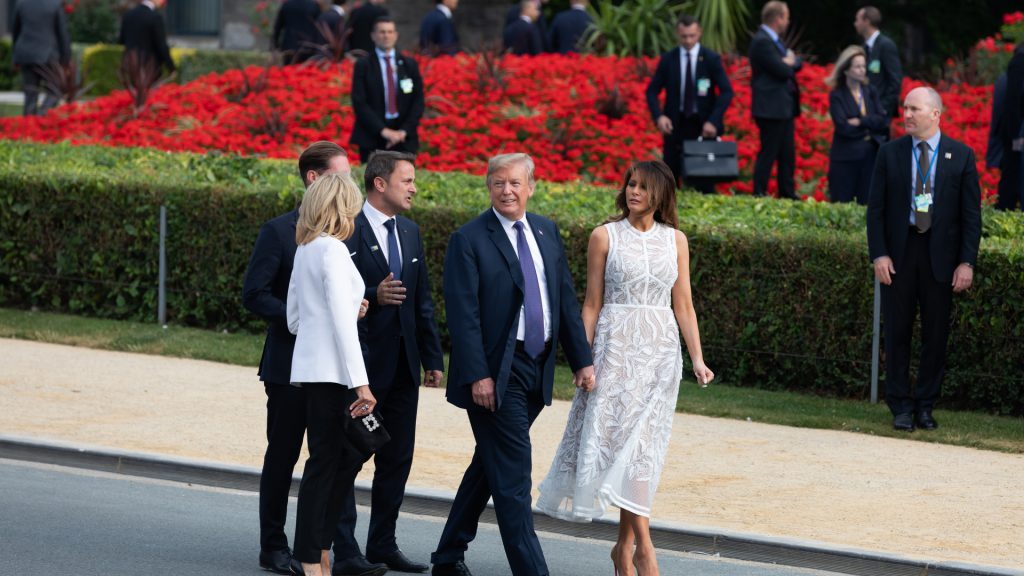
Published June 13, 2019
Sometimes, the shortest of lives inspire millions. And so it is with the oak tree that French President Emmanuel Macron ceremonially planted with President Trump on the South Lawn of the White House. It was intended as a symbol of the enduring Franco-American alliance. But on June 11, Macron confirmed it had died. It has gone on to the great oak forest in the sky.
The anonymous sapling — a tree has no name, you might say — was born in France before, Lafayette-like, setting out for the land of the free. Appallingly, however, like so many immigrants in Trump’s America, the tree had to undergo extreme vetting, in this case the quarantine mandated for foreign plants, which Macron said contributed to the tree’s demise. The soil giveth, the bureaucracy taketh away.
Experts told the New York Times that soil differences between Europe and America were probably another factor in the tragedy of the wilted foreigner, raising the ugly specter of arboreal nativism with implied doubts about how arrivals from overseas can properly assimilate, or “take root” in “American soil.”
“In the words of the Psalmist, may this relationship grow ‘like a tree firmly planted by streams of water, and produces its fruit in season whose leaf also does not wither,’” declared Vice President Mike Pence after the planting. The tree, it turned out, was more like the cursed fig tree from the Gospels, or perhaps the seed planted on rocky soil.
“It’s not a tragedy,” Macron callously declared upon confirming the tree’s demise, adding: “One shouldn’t see symbols where there are none.”
Quite right. Those who see in the tree’s extinction a symbol of the end of the once-ballyhooed “bromance” between Macron and Trump should ask themselves whether the relationship really relies on chlorophyll to transform sunlight into nutrients. Clearly, it does not. (This should not be taken to imply that human beings who identify as oak trees are not trees.)
Unlike an oak tree, Macron is not fueled by photosynthesis, but rather by his preternatural talent for appealing to older people. His meteoric career is a list of the men several decades his senior to whom he became protégé. Along with education and income, age is the strongest correlate to electoral support for Macron. It seems, however, that this superpower does not work on foreign heads of state, much like a certain French tree’s inability to survive in alien soil. Whether it is Theresa May on Brexit, Angela Merkel on European policy, or Trump on trade and security, foreign leaders have thus far proven mysteriously resistant to forsaking their countries’ national interests in exchange for Macron being friendly to them, and so few of Macron’s diplomatic endeavors have borne fruit.
Many French people are familiar from their schooldays with 17th century poet Jean de La Fontaine’s renditions of Aesop’s classic fables, which makes it imaginable that Macron wanted his diplomacy to be like “The Fox and the Crow.” His foxy sweet-talking would get other leaders to give up the cheese. But in this period of mourning, it would be bad taste to compare it instead to “The Oak and the Reed,” to oblivious bravado leading to a beautiful tree’s untimely death.
Meanwhile, contrary to predictions that Trump would be easily bamboozled by his counterparts, he has proved focused on American national interests, whether it has been sanctioning Russia, confronting Iran, or hammering China on trade. The exception seems to be Kim Jong Un, whose family is known, among other things, for its sponsorship of flowers and not trees. Could this be mere coincidence? Or is there a reason experts don’t like to talk about plant geopolitics?
Macron has already announced he will send Trump a new tree. But nothing can ever replace a unique plant that, though never taking root properly in the White House South Lawn, surely took root already in all our hearts.
Pascal-Emmanuel Gobry is a fellow at the Ethics and Public Policy Center and a writer based in Paris.





